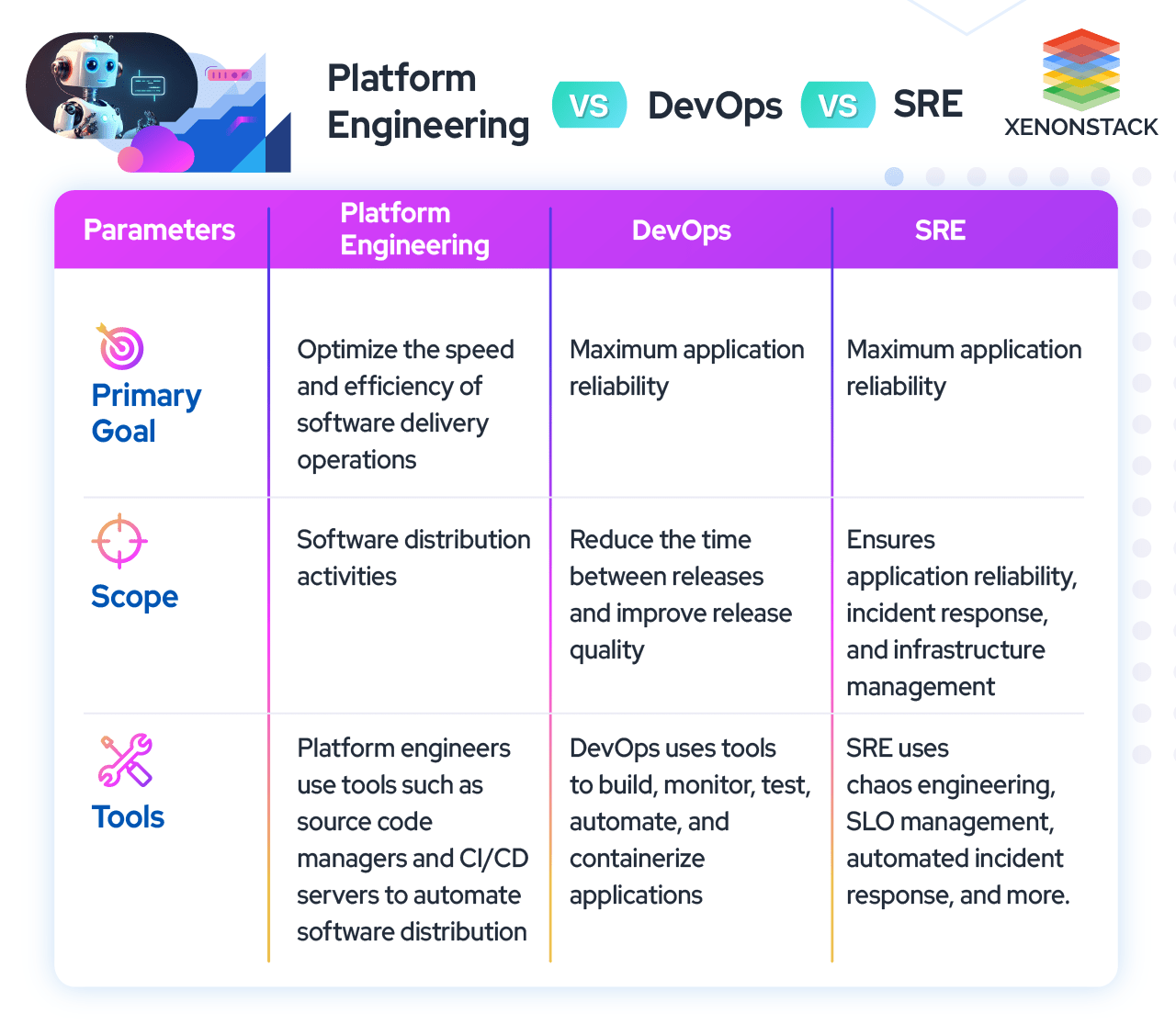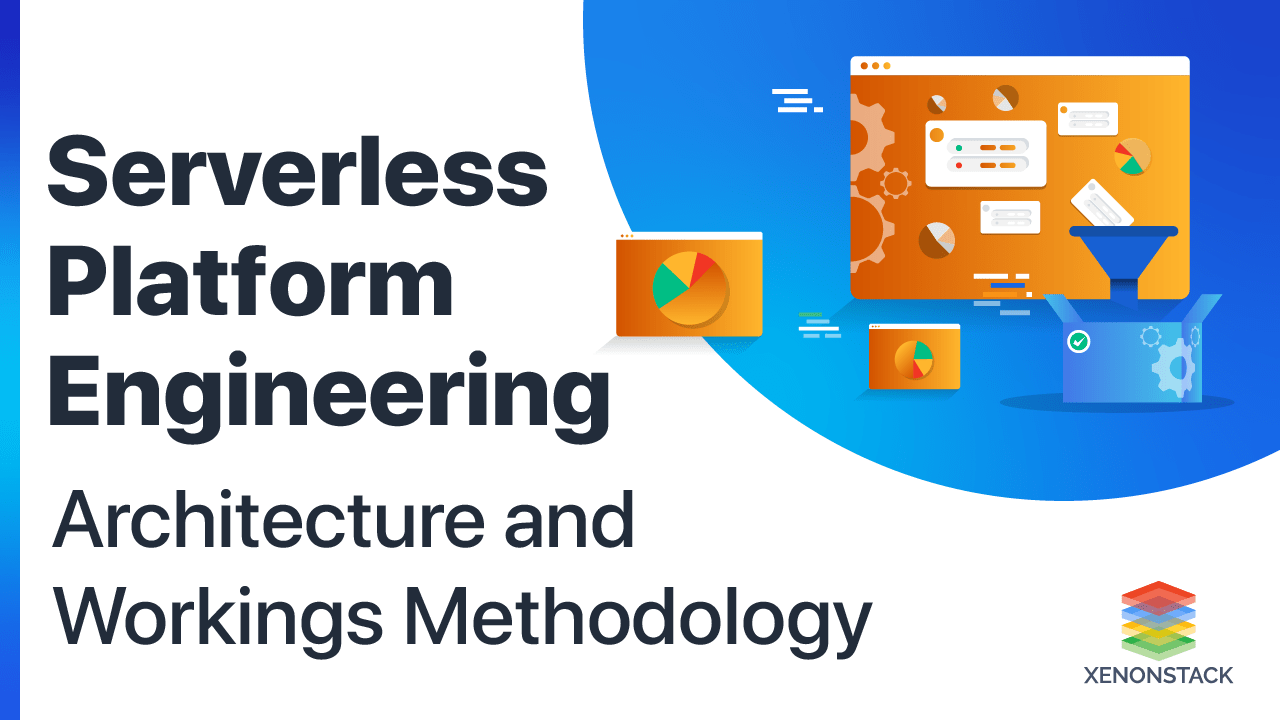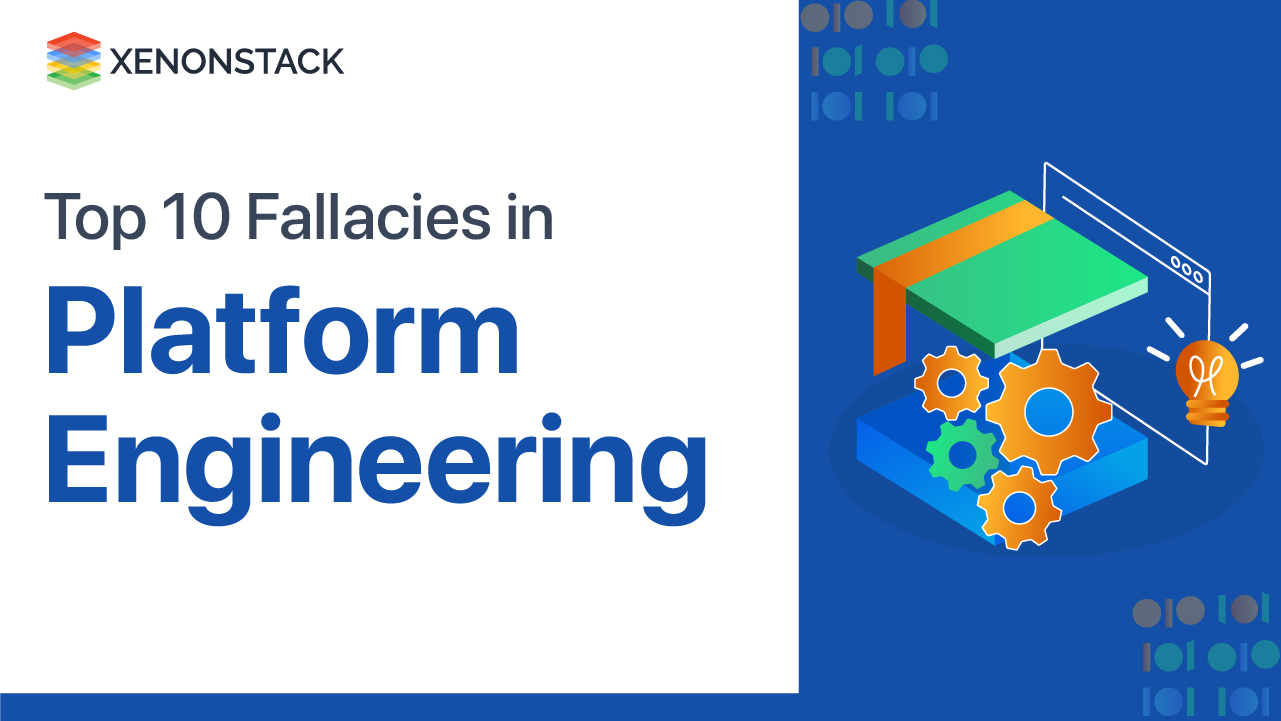
Platform Engineering vs. DevOps
-
Platform engineering is the next stage of DevOps development. It includes the best intentions of the cultural changes that preceded it.
-
Platform engineering is a DevOps methodology in which organizations create a collaborative platform that enhances the developer's experience and boosts productivity by offering self-service operations.
-
DevOps leverages various tools to optimize the deployment, management, and monitoring processes through automation and visualization. On the other hand, platform engineering transforms these tools, methods, and best practices into reusable tools and services. These resources are available to different engineering teams and can be applied to various use cases within the organization.
Platform Engineering vs. SRE
-
Platform engineering speeds up the software delivery process. Platform engineers ensure that application development teams work efficiently in every aspect of the software delivery lifecycle, whereas Site reliability engineering applies software engineering principles to improve reliability. Site reliability minimizes the frequency and impact of outages that can impact the overall reliability of cloud applications.
-
Site reliability engineering is like a fusion of software and operations engineering. This leads to applying software engineering principles to constructing and maintaining system infrastructure. Platform engineering enables developers to ship code faster by using growing and preserving automation systems that may always be leveraged throughout the organization. SRE is a foundation or "lower level" process, while Platform Engineering is a higher level process that provides some service to the development team.
-
Site Reliability Engineering and Platform Engineering are crucial for developing cloud-native applications.
Platform Engineering vs. DevOps vs. SRE
-
The primary goal of SRE engineers is maximum application reliability. The primary goal of platform engineers is to optimize the speed and efficiency of software delivery operations. The main goal of DevOps engineers is to optimize the development process.
-
The scope of platform engineering related to software distribution activities. SRE's reach ensures application reliability, incident response, and infrastructure management. DevOps aims to reduce the time between releases and improve release quality.
-
SRE uses chaos engineering, SLO management, automated incident response, and more. Platform engineers use tools such as source code managers and CI/CD servers to automate software distribution. DevOps uses tools to build, monitor, test, automate, and containerize applications.

Why is Platform Engineering essential?
Platform Engineering provides continuous visibility into services and their owners. This powerful visualization allows SREs, operations, and product teams to view each service's digital footprint. Connecting affected teams and individuals faster reduces incident resolution time and, with the right integrations, gives engineering teams end-to-end solution ownership.
For self-service and automation, end users want platform engineering tools that give them freedom and independence to run as fast as possible and deliver value to their end users. Flexible and scalable platforms are designed to ensure order and improve productivity and efficiency.
There is always a conflict between a developer's desire for autonomy and agility and the need for business governance and control. Codifying the security, cost, and compliance policies needed to manage cloud infrastructure can help implement this approach.
Platform Engineering Tools
-
Kubernetes for container orchestration.
-
Crossplane will manage Cross Kubernetes infrastructure Qovery for the internal development platform's preview environment Gitlab CI for CI Humanitec.
-
ArgoCD for CDs
-
Docker to host application
-
Terraform to automate infrastructure provisioning
Future Trends of Platform Engineering
Platform Engineering is used in several organizations to take on these responsibilities. The rise of microservices, container orchestration, and the like have introduced novel engineering challenges. Platform engineering teams have formed at several organizations to shoulder these responsibilities.
Automated infrastructure operations, reusable tools, and self-service features enhance developer productivity and experience. This technology approach uses configurable and reusable application components and services. Users benefit from standardized, automated tools, components, and processes.
Discover here about Platform Engineering Overview





